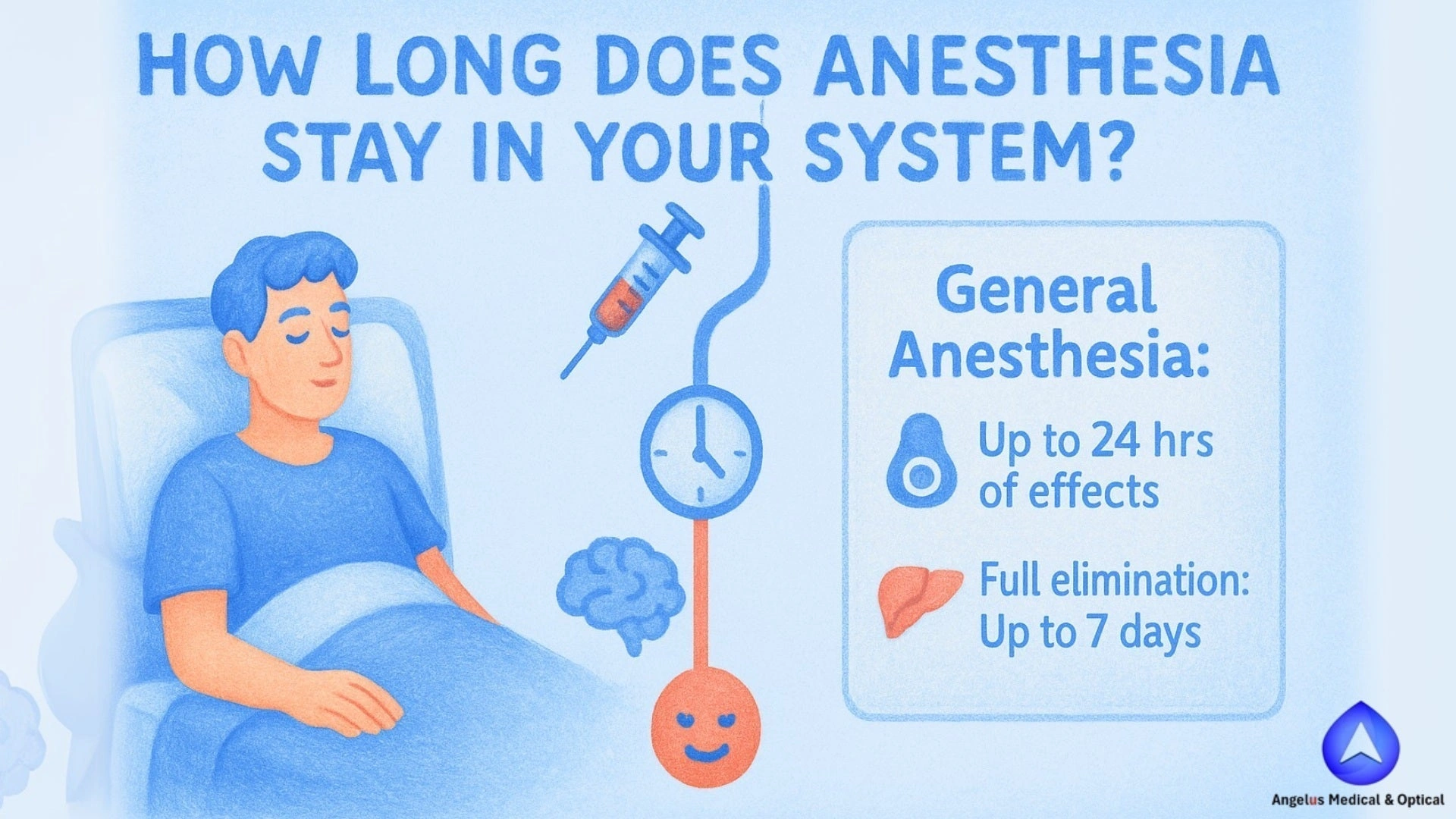
Wait… Is It Still There?
Most people don’t realize that anesthesia isn’t something you just shake off with a nap and a sandwich. If you’ve woken up from surgery expecting to leap out of bed, only to shuffle around in your pajamas for weeks, you’re definitely not the only one. I’ve been there—two weeks post-op with a brain so foggy, I once forgot where I put my own shoes (spoiler: still wearing them).
But here’s what gets everyone talking—and searching: can anesthesia stay in your system for months, or is it just your body doing its recovery thing? Why does it feel like you’re “not yourself” long after the hospital bracelet comes off? Let’s untangle what’s really happening—and when you should actually worry.
What Actually Happens When You “Wake Up”?
Let’s be honest. Waking up from anesthesia isn’t like waking up from a normal night’s sleep. For many of us, it’s more like coming out of a movie marathon with zero recollection of the plot. You know—groggy, a bit loopy, sometimes an urge to spill embarrassing secrets to the nurses. But… what’s actually going on inside?
How Does Anesthesia Work, Really?
Think of anesthesia as the ultimate “off switch” for pain and memory during surgery. There are different types: local (just a pinch), regional (a whole limb goes numb), and good old general anesthesia, where you’re out cold and dreaming of something weird. These drugs work fast, but each has its own escape plan from your body.
A peek inside the recovery process:
- Local: Usually gone in a few hours.
- Regional: Depends—could stick around for much of the day.
- General: You wake up within minutes or hours, but your body may need days (sometimes a week) to clear things out. Yes, you can feel anesthesia long-term side effects like tiredness or grogginess after the “main show” is over.
For a breakdown of timelines, check how each drug moves through you at how long does anesthesia affect the body?.
So, Can Anesthesia Stay in Your System for Months?
This is the million-dollar question. If you’ve ever sat at home yanking yourself out of random naps weeks after the operation, you’ve probably Googled it (at least once)—can anesthesia really stay in your system for months?
Here’s the short answer: The actual medication does not stay in your body for months. Most anesthetics (like propofol, midazolam, or the “gases” for general anesthesia) are metabolized and flushed out in a matter of hours or, at most, days. Even the hardcore stuff your anesthesiologist uses for a long surgery is gone pretty fast—your body’s a pro at cleaning up after itself.
But… and this is a big but… your recovery can feel like the guest who simply won’t leave the party. The drowsiness, brain fog, or low energy is often due to how your whole system reacts to the surgical stress, not the anesthesia itself sticking around. According to one detailed breakdown by HoopCare, even though the drugs exit your system pretty quickly, the aftereffects can definitely linger—sometimes for weeks, occasionally months, especially if you’re older or had a more intense surgery.
“It’s Still in Me!”: Why You Might Feel Like It’s Not Gone
I’ll be honest: after my own surgery, I swore there was still something in my veins at week three. Why else would I run out of “get up and go” by 2 pm every day?
But according to experts, the symptoms you might call “leftover anesthesia” are really your body recalibrating after the medication, the surgery, and all that recovery hustle. The liver and kidneys have already done their duty, sweeping the chemicals out. What’s left is “surgical hangover”—not the drugs themselves, but your cells catching their breath.
When Does Grogginess Cross the Line?
Okay, here’s where it gets interesting. There’s tired, and then there’s “am I turning into a sloth?” Post-surgical fatigue is real—and for some folks, especially after big surgeries or if you’re managing a few chronic health issues, it can last a while. But when should you worry?
Brain Fog, Fatigue, and The “Long Tail”
According to research—plus a heart-to-heart with my own anesthesiologist—the most intense brain fog or confusion usually lifts in the first one to two weeks. However, in older adults (looking at you, Dad!) or after a longer, rougher surgery, fatigue and mild cognitive issues can linger up to six weeks, sometimes longer.
And get this: a study on anesthesia long-term side effects found that while most people don’t have problems that last for months, a small percentage—especially seniors—sometimes feel “off” for a surprising amount of time.
Table: Typical Duration of Common Anesthesia Effects
| Effect | How Long Is Normal? | When To Talk to Your Doctor |
|---|---|---|
| Nausea | Hours – 1 day | More than a few days or persistent vomiting |
| Drowsiness/Fatigue | 1–2 weeks, up to 6 weeks for major ops | Still wiped out after 2 months |
| Confusion (“Brain Fog”) | Days, sometimes up to 2 weeks | Signs lasting several weeks, getting worse |
| Numbness (after regional anesthesia) | Hours to several days | Any new weakness or persistent symptoms |
Need details for your specific type of anesthesia? You can check how long does anesthesia affect the body? for a tailored breakdown.
Why Does It Still Feel Like Something’s Off?
Let’s be honest—our bodies are kind of drama queens. You go through surgery, get some serious meds, nap for hours, and your brain is like, “Whoa, this is new.” It takes a while for things to settle down.
But there are some real reasons why you might feel “off” for quite a while:
- Age & Health: If you’re older or juggling chronic illnesses, that fatigue can hang on longer. Not just “a bit longer”—sometimes months, especially after big operations.
- Type & Length of Surgery: Major surgical battles? Expect a longer road—your body’s healing, not just evicting anesthesia.
- Complications: Infections or post-op setbacks can drag everything out. One friend of mine had a small complication after her C-section; three months later, she still lost steam by lunchtime.
Real Talk: What’s Normal, What’s Not?
Dr. Kaveh on YouTube (who makes even boring science sound fun) breaks it down like this: feeling weird for a few days is par for the course. Still feeling sluggish a month later? Time to check in with your doc, just to be safe. Watch his explanation here.
Bouncing Back: What Actually Helps?
So… how do you get your mojo back? I’ll share what helped me and a few friends (and yes, what definitely didn’t work):
Listen to Your Body (Even If It’s Whining)
Boring as it sounds, rest actually helps the most. Your body is repairing itself, not just metabolizing drugs. Trying to rush it? I tried to go to yoga three days after a minor surgery… ended up awkwardly napping on my mat while everyone else did downward dog. Whoops.
Hydrate, eat a little extra protein, and take gentle walks around the block. It’s not sexy, but it works. Slowly up your activity as you feel able.
Small “Life Hacks” for Post-Anesthesia Funk
- Keep a journal: Note your sleep, energy, brain fog, or pain.
- Let friends/family help, even if it’s just to remind you where you left your wallet.
- Don’t be shy about telling your doctor if something isn’t right—especially if the fog lingers or gets worse, or you develop new symptoms.
My neighbor swears by ginger tea for post-op nausea. Me? A streaming playlist and the patience of a saint. (Okay, maybe more like the patience of someone who naps a bit too much…)
Don’t Ignore Lingering Symptoms—But Don’t Panic, Either
Look, it’s easy to spiral. “What if this feeling never goes away?” The answer: almost never. For the vast majority, everything returns to normal before you know it. But if you’re losing weight, can’t get up for more than a few minutes each day, or your memory feels way off, reach out to your doctor. There could be something else going on.
For more details on what’s typical and what’s not, check anesthesia long-term side effects or ask your care team about that “invisible timeline” for healing.
Ready to Reclaim Your Bounce?
I get it. You want to feel “normal” again… yesterday. While the answer to “can anesthesia stay in your system for months” is—thankfully—no, the truth is recovery is kind of a slow dance. Sometimes it’s one step forward, two steps back, and that’s completely okay. Be gentle with yourself, use those tiny windows of energy for things you enjoy, and don’t compare your healing to anyone else’s.
Seriously—if your recovery is slow, it’s not just you, and it’s NOT because you did something wrong. It’s almost always a sign your body needs more time. And let’s be real: who couldn’t use an excuse to nap every now and then? (I know I’ll take one.)
If you’re still stuck in the slow lane after a few months, touch base with your doc for a check-in. That’s why they’re there. Otherwise, celebrate each tiny victory, keep moving forward, and give your body some credit. You got this. And if you have your own story to share, drop it in the comments—hearing from “real people” helps more than any statistics ever could.
Ready to feel a bit more like yourself? Start with a walk, a glass of water, or maybe just that second nap. You’ve earned it.


















Leave a Reply
You must be logged in to post a comment.